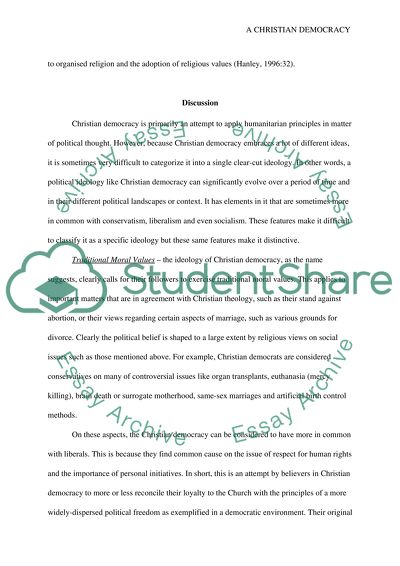Cite this document
(Distinctive Features of Christian Democracy Coursework, n.d.)
Distinctive Features of Christian Democracy Coursework. Retrieved from https://studentshare.org/politics/1575509-what-are-the-distinctive-features-of-christian-democracy
Distinctive Features of Christian Democracy Coursework. Retrieved from https://studentshare.org/politics/1575509-what-are-the-distinctive-features-of-christian-democracy
(Distinctive Features of Christian Democracy Coursework)
Distinctive Features of Christian Democracy Coursework. https://studentshare.org/politics/1575509-what-are-the-distinctive-features-of-christian-democracy.
Distinctive Features of Christian Democracy Coursework. https://studentshare.org/politics/1575509-what-are-the-distinctive-features-of-christian-democracy.
“Distinctive Features of Christian Democracy Coursework”. https://studentshare.org/politics/1575509-what-are-the-distinctive-features-of-christian-democracy.


